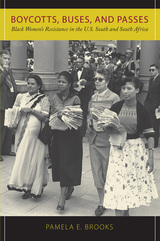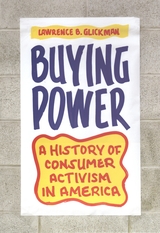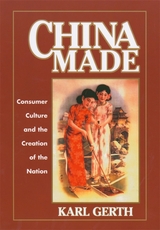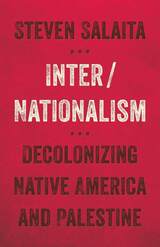

A definitive history of consumer activism, Buying Power traces the lineage of this political tradition back to our nation’s founding, revealing that Americans used purchasing power to support causes and punish enemies long before the word boycott even entered our lexicon. Taking the Boston Tea Party as his starting point, Lawrence Glickman argues that the rejection of British imports by revolutionary patriots inaugurated a continuous series of consumer boycotts, campaigns for safe and ethical consumption, and efforts to make goods more broadly accessible. He explores abolitionist-led efforts to eschew slave-made goods, African American consumer campaigns against Jim Crow, a 1930s refusal of silk from fascist Japan, and emerging contemporary movements like slow food. Uncovering previously unknown episodes and analyzing famous events from a fresh perspective, Glickman illuminates moments when consumer activism intersected with political and civil rights movements. He also sheds new light on activists’ relationship with the consumer movement, which gave rise to lobbies like the National Consumers League and Consumers Union as well as ill-fated legislation to create a federal Consumer Protection Agency.

“Chinese people should consume Chinese products!” This slogan was the catchphrase of a movement in early twentieth-century China that sought to link consumption and nationalism by instilling a concept of China as a modern “nation” with its own “national products.” From fashions in clothing to food additives, from museums to department stores, from product fairs to advertising, this movement influenced all aspects of China’s burgeoning consumer culture. Anti-imperialist boycotts, commemorations of national humiliations, exhibitions of Chinese products, the vilification of treasonous consumers, and the promotion of Chinese captains of industry helped enforce nationalistic consumption and spread the message—patriotic Chinese bought goods made of Chinese materials by Chinese workers in factories owned and run by Chinese.
In China Made, Karl Gerth argues that two key forces shaping the modern world—nationalism and consumerism—developed in tandem in China. Early in the twentieth century, nationalism branded every commodity as either “Chinese” or “foreign,” and consumer culture became the place where the notion of nationality was articulated, institutionalized, and practiced. Based on Chinese, Japanese, and English-language archives, magazines, newspapers, and books, this first exploration of the historical ties between nationalism and consumerism reinterprets fundamental aspects of modern Chinese history and suggests ways of discerning such ties in all modern nations.


“The age of transnational humanities has arrived.” According to Steven Salaita, the seemingly disparate fields of Palestinian Studses and American Indian studies have more in common than one may think. In Inter/Nationalism, Salaita argues that American Indian and Indigenous studies must be more central to the scholarship and activism focusing on Palestine.
Salaita offers a fascinating inside account of the Boycott, Divestment, and Sanctions (BDS) movement—which, among other things, aims to end Israel’s occupation of Palestinian land. In doing so, he emphasizes BDS’s significant potential as an organizing entity as well as its importance in the creation of intellectual and political communities that put Natives and other colonized peoples such as Palestinians into conversation. His discussion includes readings of a wide range of Native poetry that invokes Palestine as a theme or symbol; the speeches of U.S. President Andrew Jackson and early Zionist thinker Ze’ev Jabotinsky; and the discourses of “shared values” between the United States and Israel.
Inter/Nationalism seeks to lay conceptual ground between American Indian and Indigenous studies and Palestinian studies through concepts of settler colonialism, indigeneity, and state violence. By establishing Palestine as an indigenous nation under colonial occupation, this book draws crucial connections between the scholarship and activism of Indigenous America and Palestine.
READERS
Browse our collection.
PUBLISHERS
See BiblioVault's publisher services.
STUDENT SERVICES
Files for college accessibility offices.
UChicago Accessibility Resources
home | accessibility | search | about | contact us
BiblioVault ® 2001 - 2025
The University of Chicago Press









